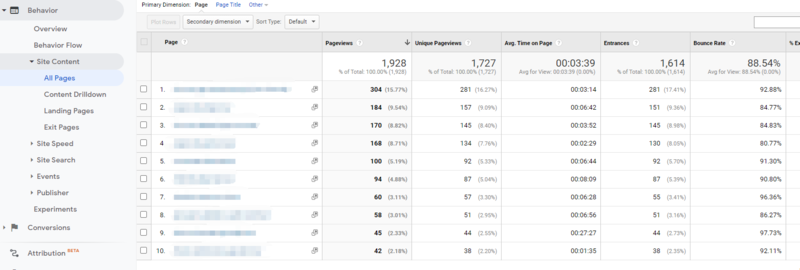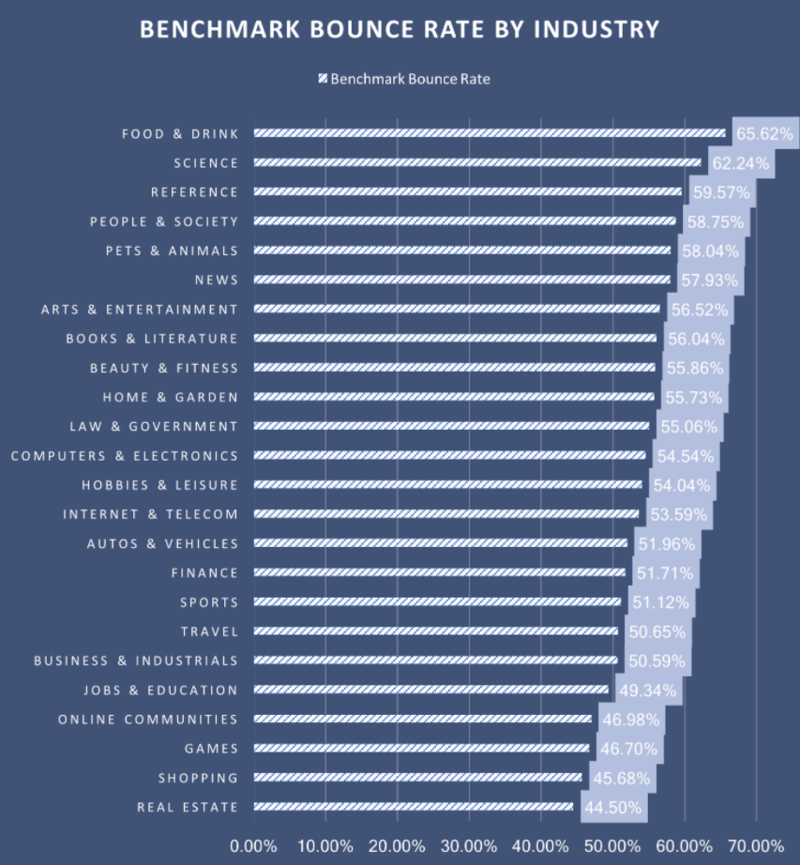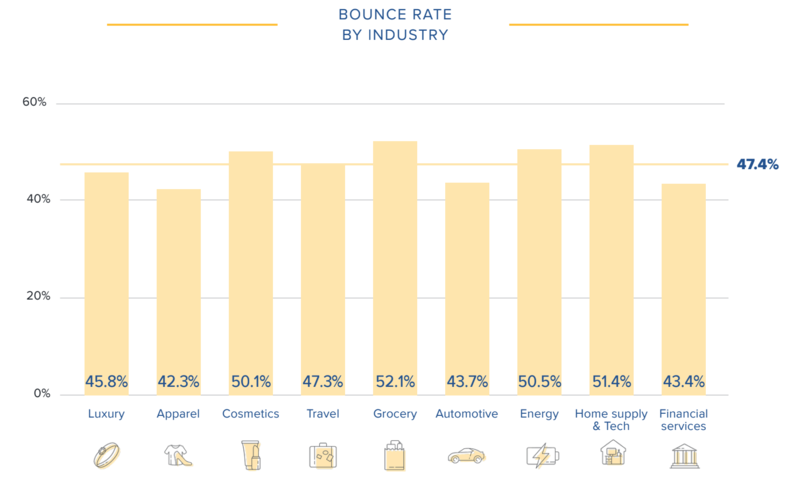What Is Bounce Rate in GA and How It Affects SEO?
Every time we log into Google Analytics account, we can check the bounce rate directly. Do you feel upset when you see that number is high and still creeping up?
Calm down! That numbers can be misleading. After all, you should understand what bounce rate in Google Analytics is. How Google Analytics calculates bounce rate? Also, what is “Good” bounce rate? What is the “Average” bounce rate? Most importantly, will bounce rate affects SEO?
In this post, I’ll answer all these questions. Let’s start with talking about exactly what bounce rate is.
Contents
What Is Bounce Rate and How Google Analytics Calculates Bounce Rates?
According to Google:
A bounce is a single-page session on your site. In Analytics, a bounce is calculated specifically as a session that triggers only a single request to the Analytics server, such as when a user opens a single page on your site and then exits without triggering any other requests to the Analytics server during that session.
Bounce rate is single-page sessions divided by all sessions, or the percentage of all sessions on your site in which users viewed only a single page and triggered only a single request to the Analytics server.
A website’s bounce rate is calculated by dividing the number of single-page sessions by the number of total sessions on the site.
Website Bounce Rate = Single-Page Sessions / Total Sessions
For example, if 100 users land on your website (total sessions) and 56 of them exit without triggering another request (single-page sessions), your website’s bounce rate is 56%.
An individual page’s bounce rate is calculated the same way, but the metrics are page-specific: divide the number of single-page sessions that begin and end on a particular page by the number of total sessions that begin and continue from that same page.
Page Bounce Rate = Single-Page Sessions On the Page / Total Sessions Starting from The Page
For example, if 100 users land on your homepage and 70 of them exit without triggering another request, your homepage has a bounce rate of 70%.
Feel confused with bounce rate and exit rate? Check our article about Bounce Rate vs. Exit Rate.
How to Find Your Bounce Rate in GA?
There are a few places that you can check bounce rate in your Google Analytics account. A couple of common places you might want to check are:
- Audience > Overview (see your whole website’s bounce rate)

- Behavior > All Pages > Bounce Rate (see which pages have higher or lower bounce rate)
- Acquisition > Channels > Bounce Rate (see what type of traffic has the lowest bounce rate)
- Acquisition > Source/Medium > Bounce Rate (see which referral traffic and mediums have lowest bounce rate)
- Acquisition > AdWords > Campaigns > Bounce Rate (see how your AdWords campaign fare when it comes to bounce rate)

What Is a Good Bounce Rate?
It is very common for us to ask what a good bounce rate is, or what the average bounce rate is. To be honest, there’s no standard benchmark for a “good bounce rate” versus a “bad” one. The metric is simply too variable based on the industry, type of content, search intent and landing page.
However, if you want to know the “AVERAGE”, we can still find clues from some researches.
According to CLX, here are some benchmark bounce rate averages for the most common kinds of websites:
- 65.62% for food and drink websites
- 57.93% for news websites
- 55.86% for beauty and fitness websites
- 50.65% for travel websites
- 45.68% for shopping websites.

Contentsquare also has a handy chart that shows average bounce rate by industry:

As a rule of thumb, a bounce rate in the range of 26 to 40 percent is excellent. 41 to 55 percent is roughly average. 56 to 70 percent is higher than average, but may not be cause for alarm depending on the website.
Then, if your website’s bounce rate is higher than 80 percent, you may need to check our list on how to reduce bounce rate.
Will Bounce Rate Affects SEO and Google Ranking?
Google knows the bounce rates of our pages, but is bounce rate is a ranking factor in SEO? Will high bounce rate have negative impact for Google ranking?
Google does not use your bounce rate in Google Analytics as a ranking factor. However, bounce rate indirectly affects the SEO factors Google does care about.
John Mueller of Google said in a webmaster hangout video at the 25 minute mark, “I think there’s a bit of misconception here that we’re looking at things like the analytics bounce rate when it comes to ranking websites, and that’s definitely not the case.”
Then, how bounce rate indirectly affects SEO and google ranking?
The search engine does monitor whether users pogo-stick. Pogo-sticking is when someone visits your website from the search results, then immediately returns to the search results and clicks on a competitor’s result. Pogo-sticking is essentially a Bounce.
When that happens, the user is saying your site isn’t as good as your competitor’s one – and Google is tracking that!
A high bounce rate means you also likely have a high pogo sticking rate and that is casting negative votes against your rankings every day.
Not only that but a high bounce rate is often a symptom of weakness in other SEO factors –
- Slow loading speed
- Poor mobile optimization
- Low-quality webpage design
- Mismatch between content and keywords
Therefore, it makes sense why reducing your webpage bounce rate often helps your SERP ranking.
Summary
I hope you enjoyed this in-depth article, and that it gave you a better understanding of what bounce rate is, how it’s calculated, and what is a good bounce rate. Moreover, while bounce rate doesn’t directly affect SEO and page ranking, it is still something you should understand and be able to improve. Typically, if a page has a high bounce rate, it means that those visiting it aren’t being engaged by the website in some way and there may be deeper problems on your website.
